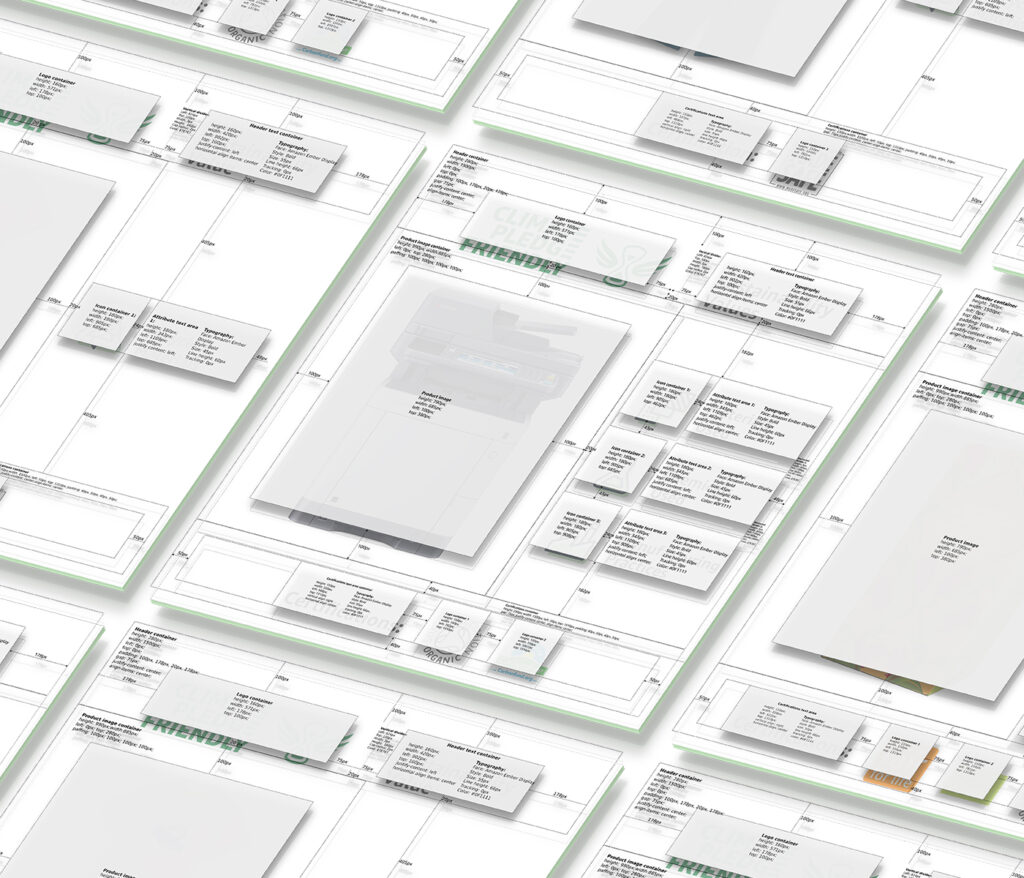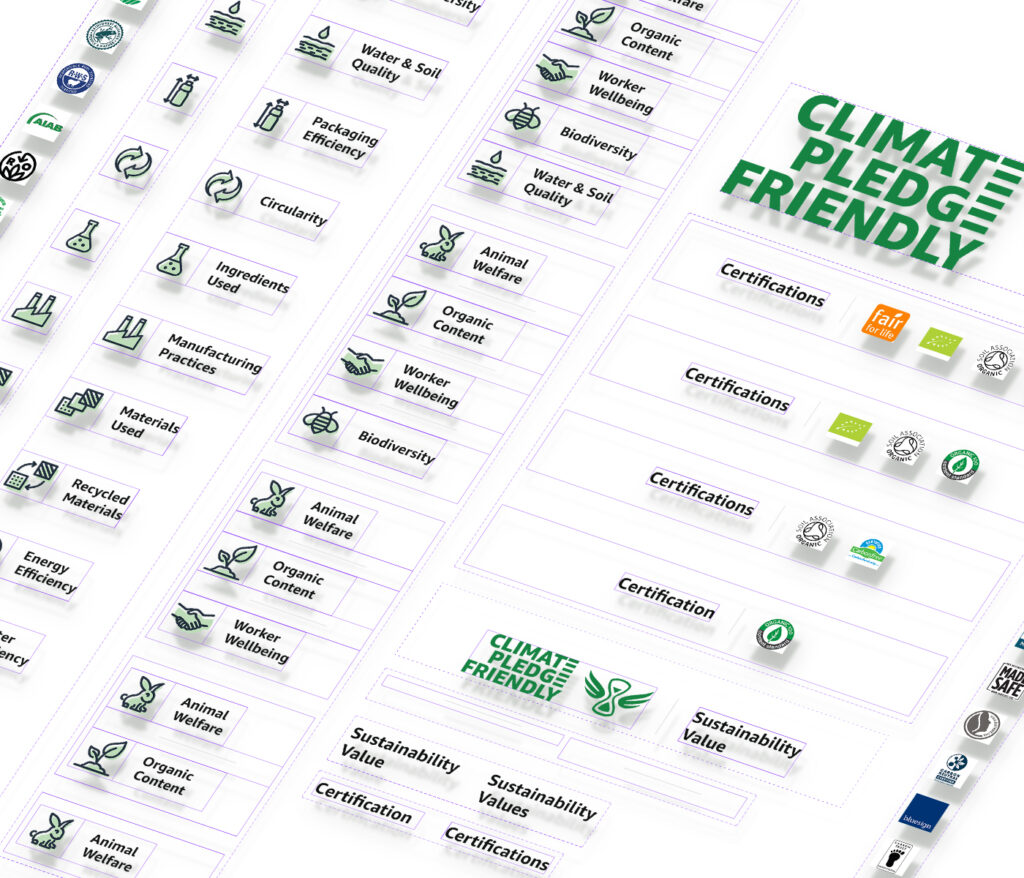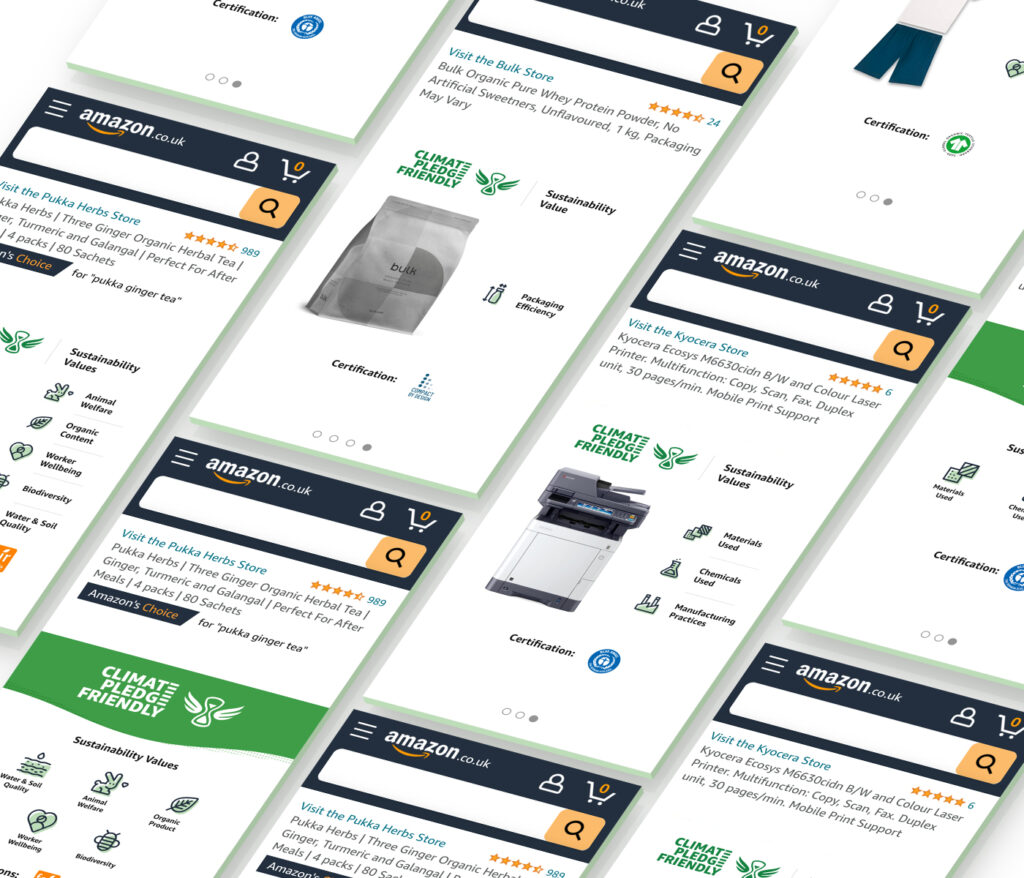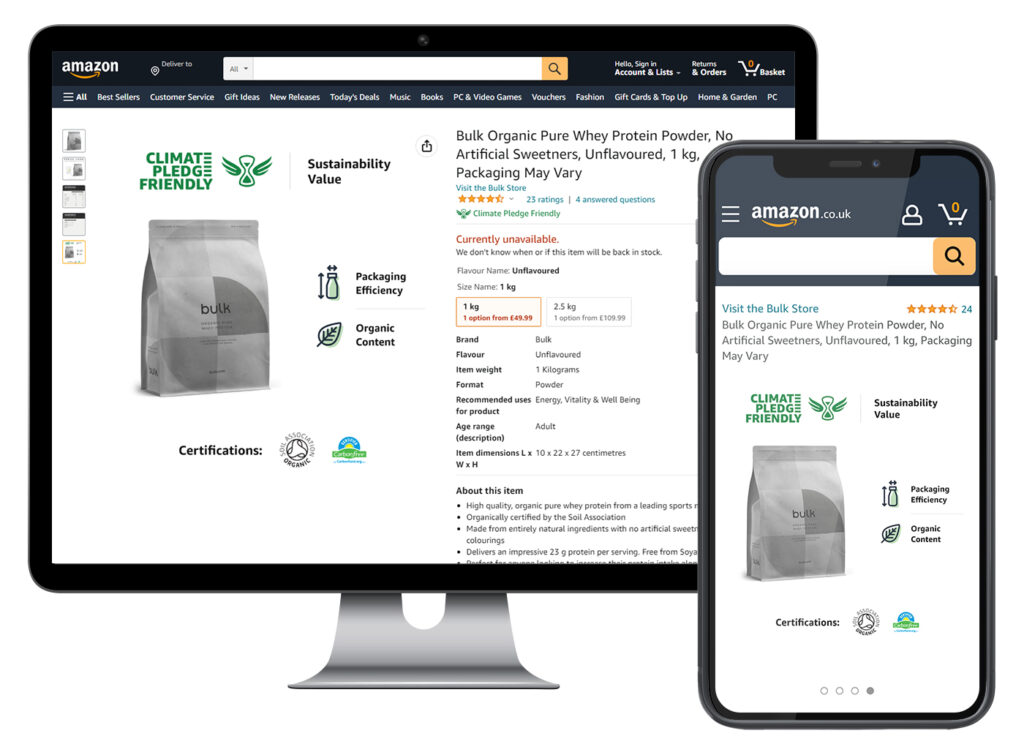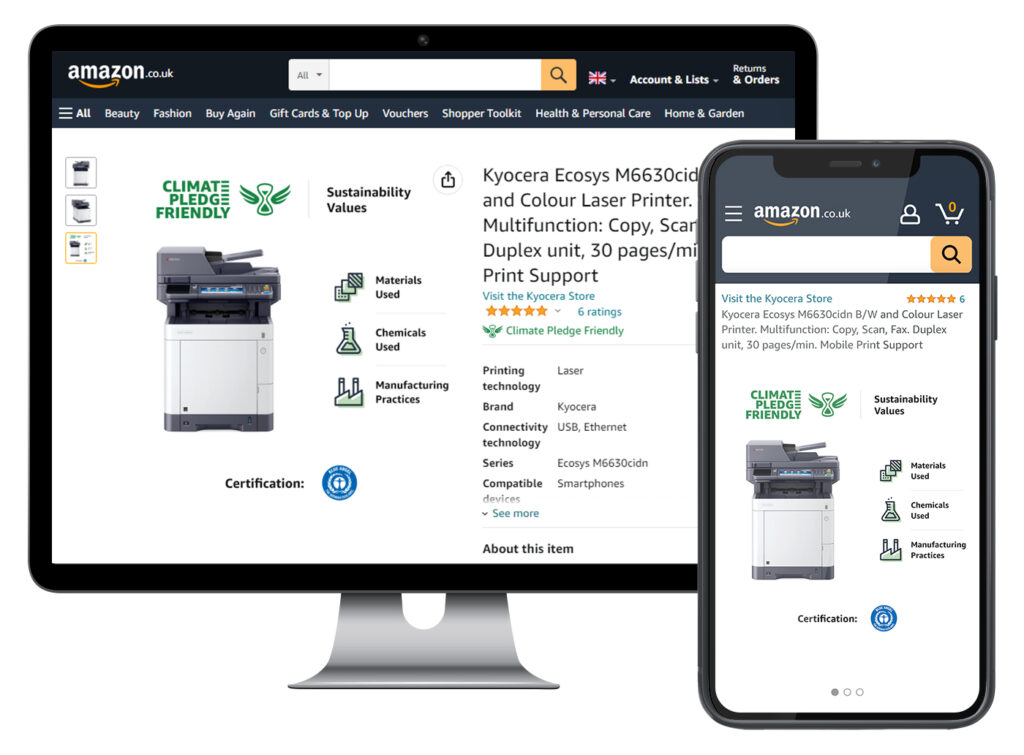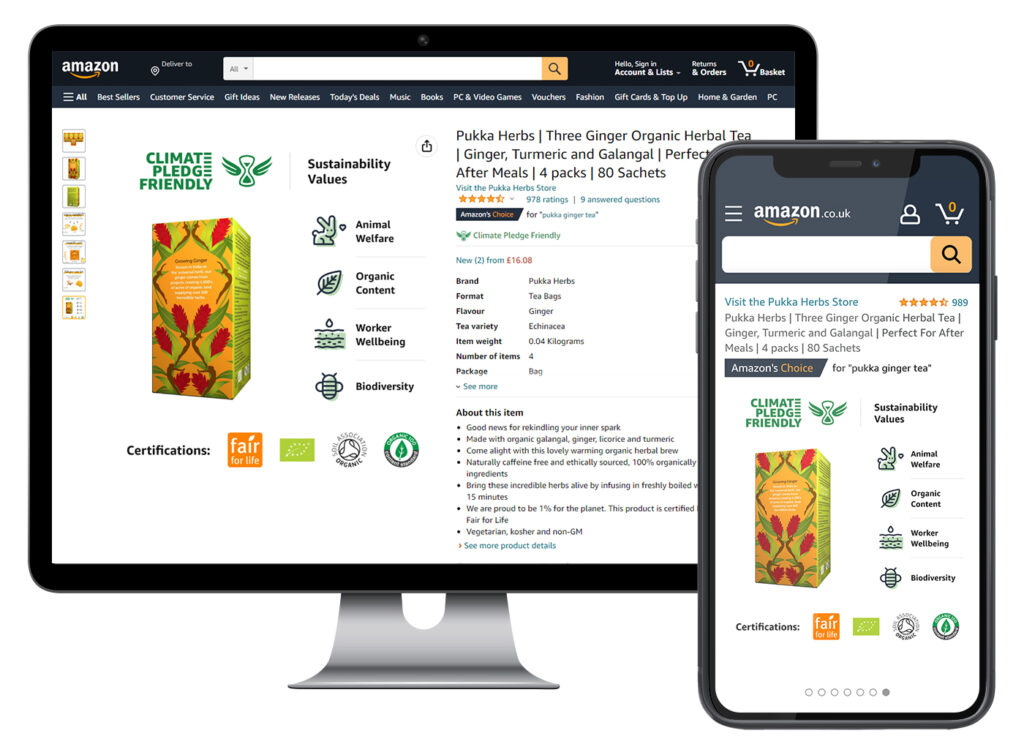What is Climate Pledge Friendly?
Amazon’s Climate Pledge Friendly program highlights products that meet sustainability standards and help preserve the natural world and is committed to building a sustainable business for our customers and the planet.
What problem I’m helping to solve?
Amazon’s Customers primarily use visual content in search and on detail page to make an assessment on a product’s sustainability. Amazon’s Customer Trust Perception studies highlighted the importance of visual content influencing customer assessment of whether they would consider a product “sustainable”. Early usability studies highlighted that customers gravitated quickly towards product photos on detail pages to look for proof that a product was sustainable. Some brands make obvious claims about sustainability in detail page images and APlus content, but many do not. When Amazon’s messaging does not align with what a customer sees on detail page the program loses trust.
Solution
Development of a visual content that can be displayed on detail page – media block that helps customers learn about the sustainable attributes of a product where they naturally look for it and raise awareness of the Climate Pledge Friendly program.
Client
Services
- Wireframing
- Prototyping
- Design System
- UI/UX Design
- Icon Design
- Art Direction
Role
Color Palette
Color palette was inherited from Amazon’s Climate Pledge Friendly guidelines in order to maintain consistent visual experience across the program.
Squid Ink
R:35 G:47 B:62
C:85 M:72 Y:51 K:52
HEX: 232f3e
Forest
#3E9D4B
R62 / G157 / B75
C77 / M14 / Y97 / K2
Badge Green
#4B8C59
R75 / G140 / B89
C75 / M24 / Y80 / K8
Aspen
#BCDDB8
R188 / G221 / B184
C27 / M0 / Y34 / K0
Typography
Design system utilizes Amazon’s corporate font family – Amazon Ember for consistent visual experience across the platforms.

Process
As part of this collaborative process, I took on the responsibility of coordinating design work with key CPF stakeholders, translators, and project managers. My role involved providing creative and art direction, outlining the design system, wireframes, and variations. Additionally, I spearheaded the building of prototypes for user testing. Following the identification of the preferred visual treatment, I constructed design system templates and played a central role in coordinating the creation of an automation tool. This tool was pivotal in scaling the production of assets efficiently.
Results
As a result of this collaborative effort, infographics were successfully integrated into 6,000 products spanning seven product families: toilet paper, shampoo, print copy paper, pyjamas, tea, and protein powder. These infographics elucidate the CPF program, offering insights into why each product is deemed more sustainable. The content within the infographics includes details on sustainability certifications and their pertinent attributes.


